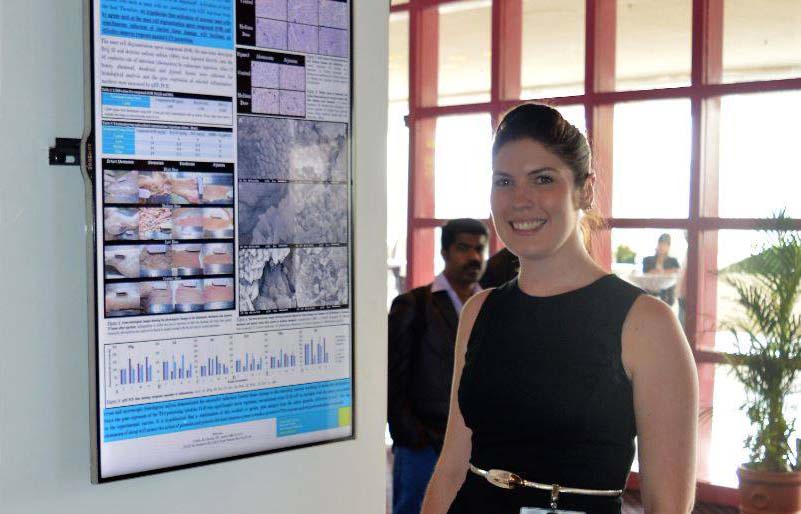To celebrate International Day of Immunology this Friday 29 April, we had a chat to biomedical scientist Dr Sinead Henderson from UNE's School of Science and Technology about her research, and why she decided to delve into the world of immunology.
What work are you doing in the immunology space?
I’m interested in the host-pathogen interactions that occur during infections in humans and animals. In my research I aim to understand how the immune response varies during infection, focusing on host protection through vaccine study and development. One of my areas of interest is Q fever, a disease that can cause severe flu-like illness for around a month in some people, but can manifest as a chronic, long-term infection in other individuals. The disease is endemic to the New England region, and is considered an occupational risk for those who work with animals due to the fact that it’s most commonly spread to humans after inhaling bacteria from infected animals. I am also interested in the development of an experimental vaccine in sheep to protect against common types of gastrointestinal parasites.
What sparked your interest in this topic?
Like so many people, I have friends and family members affected by autoimmune disease or other illnesses and I wanted to understand more about these conditions. The field of immunology provides a fascinating insight into the mechanisms behind these illnesses. If we can understand how and why disease occurs, this knowledge can fuel the development of new preventions, treatments and cures.
Why are vaccines so important?
Vaccination saves millions of lives every year! When you receive a vaccination, a small part, a dead, or a weakened version of the germ is usually administered as a part of the vaccine. This prompts your immune system to undergo training to build protection against the germ so that if you are exposed to the actual disease, your immune system will be able to protect you. Even better, by getting vaccinated, you not only protect yourself, but you protect other people around you. If enough people are vaccinated against a disease, the illness may even be eradicated to protect future generations.
What would you say to someone considering going into the immunology field?
If you have a passion for science, and a desire to make a difference to the lives of others, this field of study is for you! Immunology is vital to the health and survival of humans and animals, and the field will change the future of medicine. If this sounds like something that you would be interested in, go for it! Immunology is an extremely broad field, and the research areas and applications are boundless. Immunologists will never stop learning and growing, and the techniques you learn will be applicable across many scientific disciplines.


